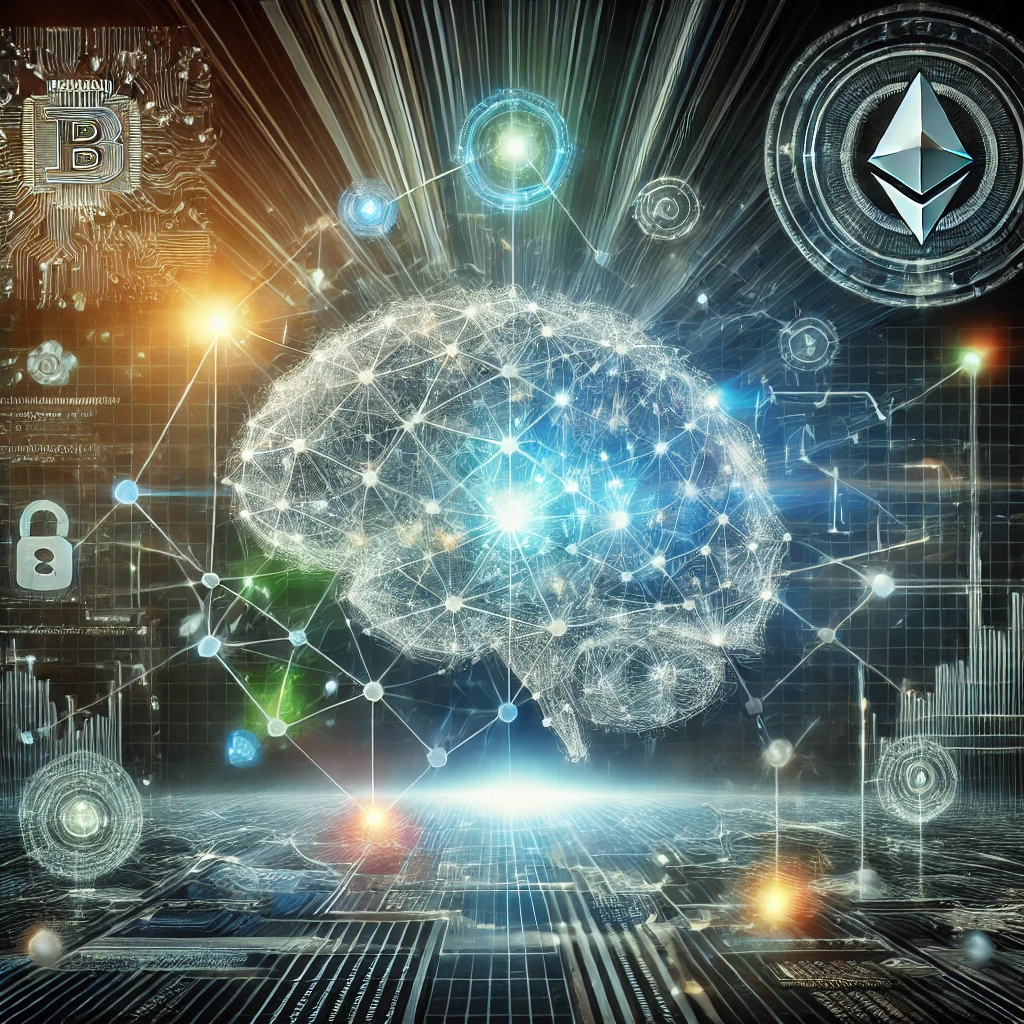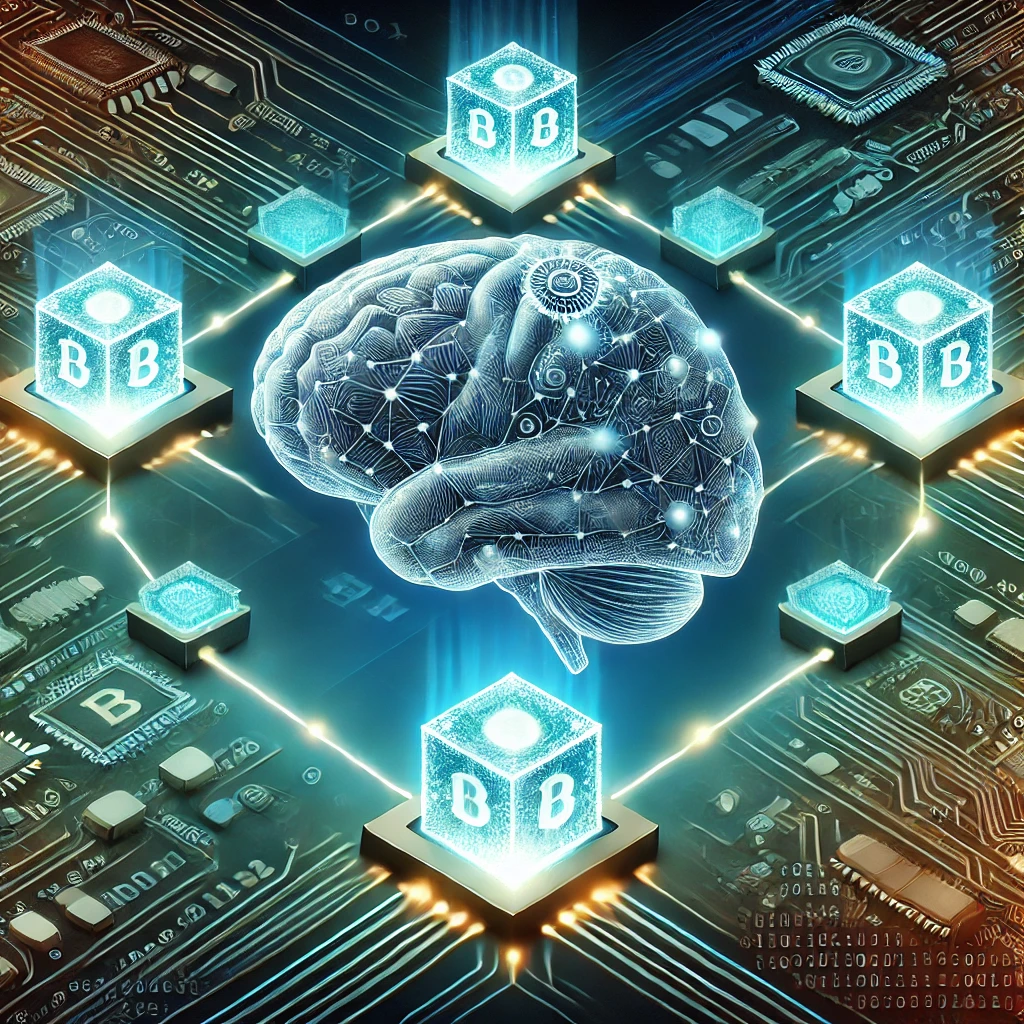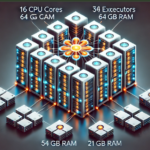Introduction
Artificial Intelligence (AI) and Blockchain are two of the most transformative technologies in the modern digital landscape. While each technology offers distinct advantages, their integration creates a powerful synergy that enhances security, efficiency, and decision-making across various industries. This blog explores how AI and Blockchain work together, their combined benefits, and real-world applications.

What is AI?
Artificial Intelligence (AI) refers to the simulation of human intelligence processes by machines, particularly computer systems. It encompasses a range of technologies, including machine learning, natural language processing, and robotics. AI can analyze vast amounts of data, recognize patterns, and make decisions, which enables organizations to improve efficiency and enhance their services.
Key Features of AI:
- Machine Learning: AI systems learn from data and improve over time, adapting to new information without explicit programming.
- Natural Language Processing: AI can understand and generate human language, facilitating better interaction between machines and users.
- Predictive Analytics: AI uses historical data to make predictions about future events, helping organizations make informed decisions.
What is Blockchain?
Blockchain is a decentralized and distributed ledger technology that securely records transactions across multiple computers. It ensures that data cannot be altered retroactively, enhancing transparency and trust. Each transaction is grouped into a block, and once a block is filled, it is linked to the previous block, forming a chain.
Key Features of Blockchain:
- Decentralization: Eliminates the need for a central authority, reducing the risk of data tampering.
- Immutability: Once recorded, transactions cannot be changed, ensuring data integrity.
- Transparency: All transactions are visible to authorized participants, promoting accountability.
The Synergy Between AI and Blockchain
The integration of AI and Blockchain can lead to innovative solutions that address complex challenges. Here are some ways in which these technologies complement each other:
1. Enhanced Data Security
Blockchain’s immutable nature provides a secure environment for storing data, while AI can monitor this data for unusual patterns. By combining these technologies, organizations can achieve a higher level of security against data breaches and cyberattacks. For instance, AI can analyze transaction data on a blockchain to identify anomalies that may indicate fraudulent activity.
2. Improved Decision-Making
AI can analyze vast amounts of data stored on a blockchain, providing valuable insights that enhance decision-making processes. By leveraging AI algorithms, organizations can predict trends, optimize operations, and make data-driven decisions. For example, businesses can use AI to analyze supply chain data stored on a blockchain to identify inefficiencies and improve logistics.
3. Automation with Smart Contracts
Smart contracts are self-executing contracts with the terms of the agreement directly written into code on a blockchain. AI can automate these contracts, ensuring that they execute only under specified conditions. This reduces the need for intermediaries and enhances efficiency. For example, in a real estate transaction, a smart contract can automatically transfer ownership once payment is confirmed, with AI verifying the transaction details.
4. Fraud Detection and Prevention
AI excels in recognizing patterns in data, making it an effective tool for fraud detection. When integrated with Blockchain, AI can analyze transaction data to identify potentially fraudulent activities in real time. For example, in the financial sector, AI can flag suspicious transactions on a blockchain, allowing organizations to respond quickly and mitigate risks.
Real-World Applications

1. Financial Services
In the financial sector, the combination of AI and Blockchain is being used to enhance security and improve transaction efficiency. For instance, AI algorithms analyze blockchain transaction patterns to detect fraud and ensure compliance with regulatory requirements. Companies like Ripple use blockchain technology for cross-border payments, while AI monitors transactions for security.
2. Supply Chain Management
AI and Blockchain are transforming supply chain management by providing end-to-end visibility and improving traceability. Blockchain stores all transaction data related to products, while AI analyzes this data to optimize routes, forecast demand, and identify potential disruptions. Companies like IBM and Walmart utilize this integration to enhance supply chain transparency and efficiency.
3. Healthcare
In healthcare, AI and Blockchain can work together to improve patient outcomes while ensuring data privacy. Blockchain can securely store electronic health records, while AI analyzes this data to provide insights into patient treatment plans. Solutions like MedRec allow patients to control their health data while enabling providers to access crucial information securely.
4. Cybersecurity
AI enhances cybersecurity measures by analyzing security logs and identifying potential threats. When integrated with Blockchain, this approach creates a robust security framework where data integrity is maintained. Companies can use AI to monitor blockchain-based systems for vulnerabilities and ensure the security of sensitive information.
Challenges and Considerations
While the integration of AI and Blockchain offers significant benefits, it also presents challenges:
- Complexity of Integration: Merging these technologies requires advanced technical expertise and infrastructure.
- Data Privacy: While Blockchain enhances data security, organizations must ensure compliance with privacy regulations, especially in sensitive industries like healthcare.
- Scalability: Both AI and Blockchain can face scalability issues, particularly in high-volume environments.
Conclusion
The combination of AI and Blockchain technology represents a powerful alliance that can transform industries and enhance operational efficiency. By leveraging the strengths of both technologies, organizations can improve data security, streamline processes, and drive innovation. As AI and Blockchain continue to evolve, their integration will unlock new possibilities and reshape the future of technology.


